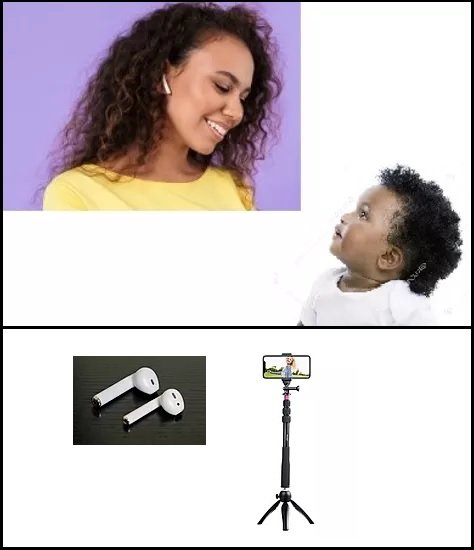By Amy Baty-Herbert | Project Coordinator
Dear Project Supporters,
Thank you for your continued support that is making an impact for Autism therapy in Senegal.
This past month has been difficult for all of Senegal. Our families and staff have been staying home since the end of March, where situations - both behavioral and financial - can reach extremes.
How can we adapt Telehealth to our urban West-African setting?
Telehealth, or delivering care via video and audio technology, relies on an internet connection. As we are in the middle of the nation's capital, most of our families are fortunate enough to have wifi in the home. However, some do not. So we asked ourselves: Is it feasible to bring telehealth to our families here in Dakar? If so, who would participate?
Most telehealth procedures start with a resource assessment: Do they have the internet? A camera? A microphone? A place to put the camera? A quiet space in the home?
Rarely will all families have all these resources in their home to do telehealth with us, but it would be a shame to declare telehealth impossible within these limitations. There is always a way forward, it might just take some creativity!
One positive note is that smartphones have become very popular in the last few years, so most families have a smartphone in their house, even if they do not have wifi. Some also have tablets.
There are several models of telehealth to choose from. We have decided that the most realistic option for us is...
Online parent coaching via live video calls
Connection: For families without internet, there is a possibility we can send internet credit via Orange Money for Whatsapp video calls, though it remains to be tested. We can also keep the option open to send an interventionist to their home (who can record videos), or maintain the temporary halt on services. Consultation calls where possible are ongoing.
Model: As most of our students are very young and working on basic communication and language skills, we would plan to train parents in conducting Pivotal Response Treatment, the First Words program (Adair is certified at Level II for the moment). This means there will be more play and less tabletop work time.
Inspired by the evidence-based Social ABC's parent training model by this Canadian team, which utilizes PRT, we hope to empower parents during these tough times to conduct this open, naturalistic, and flexible therapy independently with their own household materials they have on hand (some even have toys and therapy materials in their homes from past therapy sessions!). The BCBA will begin with meetings about therapy goals and PRT techniques, then jump into highly-supported sessions where parents are coached live through their earphones. As the parent progresses in their training, the BCBA will fade out support to once per week.
Materials: The best option at the moment seems to be light, flexible, smartphone tripods, and wire-free earbuds so the parent can play with their child - with full freedom of movement. The tripod will be placed at full length in the corner of the room with the phone screen facing towards the wall (to minimize distraction). The BCBA will watch on the camera and talk into the parent's ear through the earbuds.
Children will need plenty of time to get used to the new piece of furniture in their space! The family may also need time to adjust to the materials and learn how to use them. These items would be discreetly dropped off at a family's home before beginning, to minimize infection, with sanitization instructions.
Testing: Though we are still formulating ideas, we have ordered these items from Jumia.sn and will hope to test this method soon in our own office before trying it out with a pilot family (including sending internet credit from phone to another). We want to make sure that everything we do is best for families - As such, this will be a collaborative process of trial-and-error, and we will welcome any and all feedback from our families as we go through this learning process together. Nio far!
Thanks For Your Support: Your support has made a difference for students with autism in the Dakar region of Senegal. We could not have done this without your generosity and kindness.
Phasing Out: After a review during these unprecedented times, we have decided to streamline our fundraising efforts. We have decided to phase out some project listings here on GlobalGiving. This will help us to be more efficient and make better use of our time.
With this in mind, we will be unfortunately be phasing out this project shortly.
Should you be interested in supporting another youth or education-related project here on GlobalGiving, we warmly invite you to join us in educating leaders in Sierra Leone.
Should you have any questions, please feel free to email us at globalgiving@developafrica.org.
With much gratitude,
The Dakar Team & Develop Africa Team
Project reports on GlobalGiving are posted directly to globalgiving.org by Project Leaders as they are completed, generally every 3-4 months. To protect the integrity of these documents, GlobalGiving does not alter them; therefore you may find some language or formatting issues.
If you donate to this project or have donated to this project, you can receive an email when this project posts a report. You can also subscribe for reports without donating.
